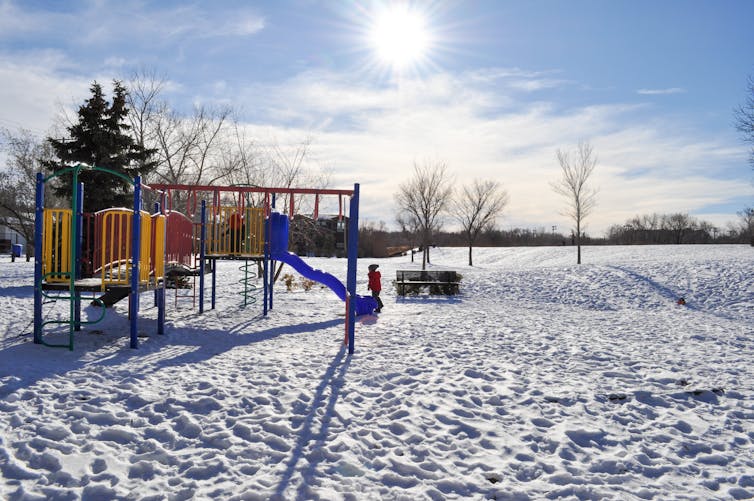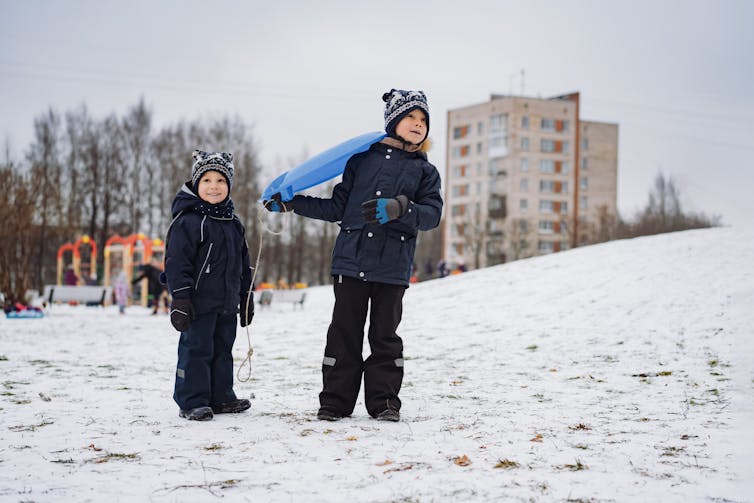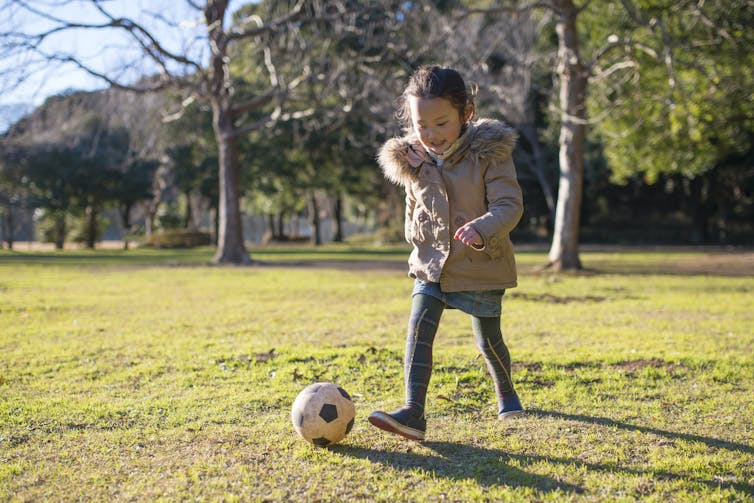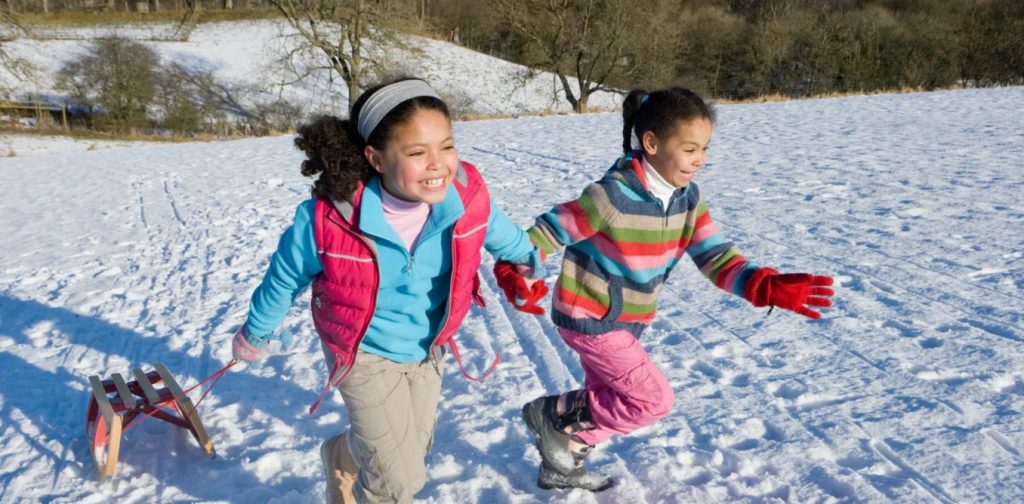We hear constantly how the COVID-19 pandemic has affected the economy, personal finance, education, health and the work day. But what about play — how has the pandemic affected play?
The community capacity to provide play opportunities has been diminished by COVID-19 restrictions or closures, yet parental workload at home has generally grown, which in turn has strained parents’ mental well-being. Children’s play is now largely determined by parents’ ability to facilitate play in or around the home.
Research at the University of Regina has explored the effects that the pandemic appears to have on play. A recent study analyzed 10 conversations of between 60 and 90 minutes with parent participants describing their experiences in one-on-one virtual meetings, as well as hundreds of electronically submitted stories about play (or lack thereof) during the pandemic. The study is now undergoing peer review.
Since many communities are facing challenging second wave lockdowns or restrictions, we wanted to share our current recommendations for supporting play at home during the COVID-19 pandemic through the holidays and into 2021 based on our early findings and our research expertise in play.

(Whitney Blaisdell)
1. Prioritize your own wellness
Parental wellness is a critical factor to play during the pandemic. Adults whose wellness is suffering are more likely to become not only less playful, but to actively resist play. Conversely, adult wellness spills over to benefit children through an increased ability to be fun-loving, relaxed and playful. It is recommended that adults prioritize their own wellness throughout the COVID-19 pandemic.
2. Value play
Play is often undervalued. A perceived importance of academic achievement over play for small children and an increasingly risk-avoidant society can threaten children’s opportunities to play.
Play is a wonderful tool for learning and cognitive development. More importantly, play is fun and life is short.
In the midst of a pandemic that has placed constant demands on people to adapt their professional capacities while lacking in-person contact, play can become a vital avenue for both adults and children to strengthen our outlook and resilience. Approaching the pandemic, as much as possible, as a novel opportunity for family togetherness and play allows us to navigate the COVID-19 pandemic with greater joy and to foster resilience.
3. Set a tone for neighbourhood play
The visibility of children playing outdoors appears to be contagious. Parents can normalize free play by offering their children more freedom to play or even discussing their desire for a more playful community with neighbours.
Children have generally been expected to meet public health guidelines in school that often include wearing masks and maintaining physical distance from people outside of their household; parents can ask and reasonably expect children to follow the same guidelines in their outdoor play. The current lack of structured activities combined with the professional obligations of many parents working from home has created an opportunity for community revitalization of children’s outdoor free play.

(Shutterstock)
4. See children as drivers of play
Children often engage in play with items or ideas that appear unchildlike or unplayful. Their play may revolve around mature concepts like death, illness, justice and control. Psychologist Lev Vygotsky famously wrote: “In play a child is always above his average age, above his daily behaviour; in play it is as though he were a head taller than himself. As in the focus of a magnifying glass, play contains all developmental tendencies in a condensed form; in play it is as though the child were trying to jump above the level of his normal behaviour.”
Seeing children as drivers of their own play who are capable of conceiving, planning and executing their play will offer children an opportunity to increase their play stamina, while putting less stress on parents to entertain their children.
5. Arrange a playful environment
Homes with access to a private yard stand out as an advantage in offering opportunities for play. Of course, this is a privilege that many families do not have. However, a playful environment can be arranged with little to no spending. First, make the home feel as safe as necessary, so children can freely explore the home environment with minimal supervision.
Next, minimize toys. Children’s play relies surprisingly little on toys, and tidying toys can be a burden to parents who are currently experiencing a heavier domestic workload.
Finally, make outdoor access as easy as possible. Visible and easily accessed outerwear and footwear, and mats or towels near exterior doors to minimize mess, help make outdoor play more enjoyable and attractive.

(Shutterstock)
6. Get outside
Spending time playing outdoors has been found to greatly contribute to one’s overall well-being.
Trying to make an effort to get outside even for a few minutes every day appears to be a critical step towards play, health and happiness during these challenging times.
Overall, COVID-19 is wreaking havoc on our individual and collective health and social and emotional functioning. As we stumble our way through this pandemic, let’s remember that play itself is integral to how children can process and understand their experiences with the pandemic; it is how they make sense of the world.
Through attending to our own wellness, examining our attitudes towards play, normalizing child-structured outdoor play, framing children as drivers of play, arranging a playful environment and spending time outside, we too are attempting to be more playful and joyful during this challenging time. We wish the readers all the best in their own pursuit of play.
By Patrick J Lewis, University of Regina and Whitney Blaisdell, University of Regina![]()
Patrick J Lewis, Associate Dean, Professor ECE, University of Regina and Whitney Blaisdell, Master’s student, Faculty of Education, University of Regina
This article is republished from The Conversation under a Creative Commons license. Read the original article.
Follow us on social media